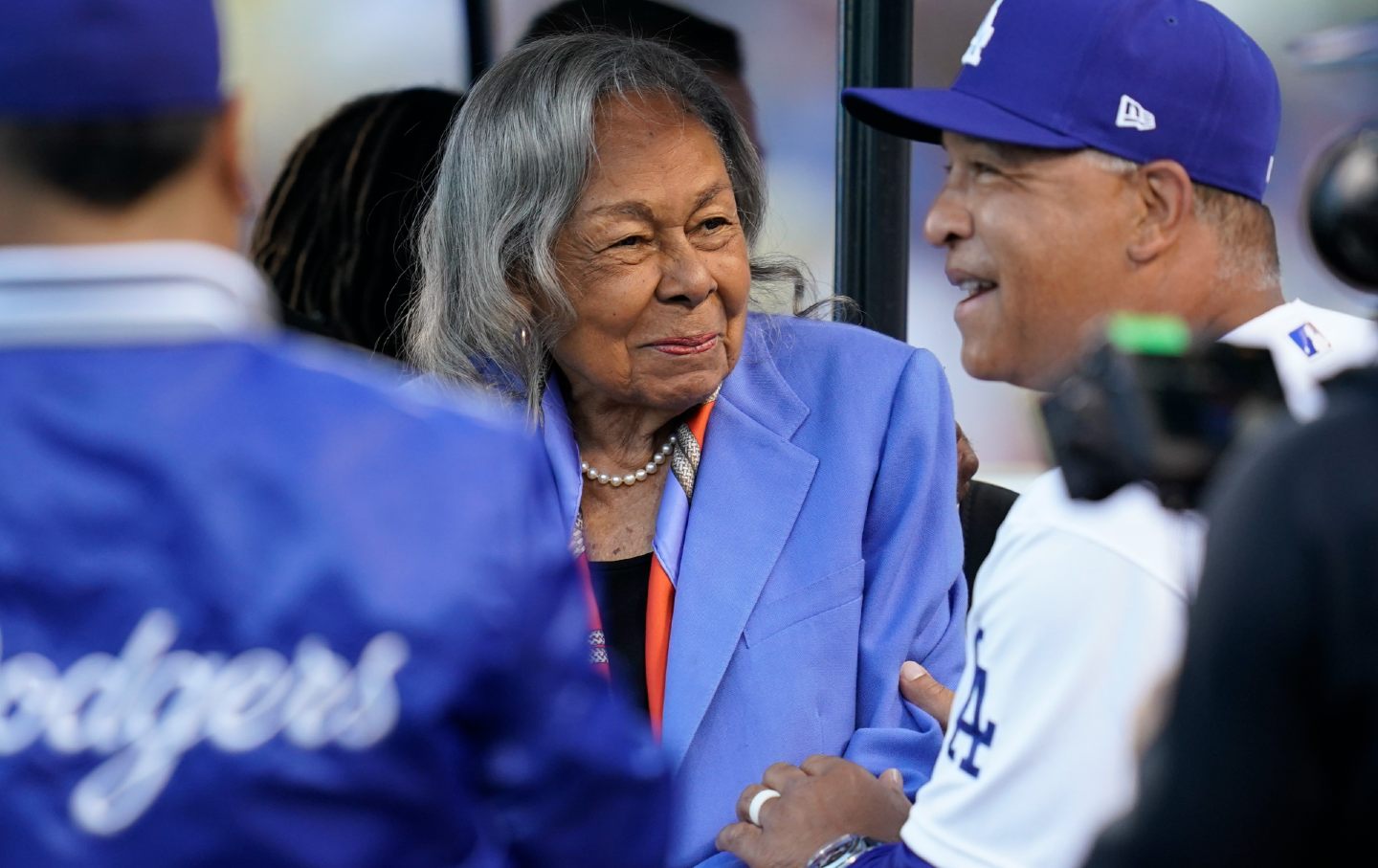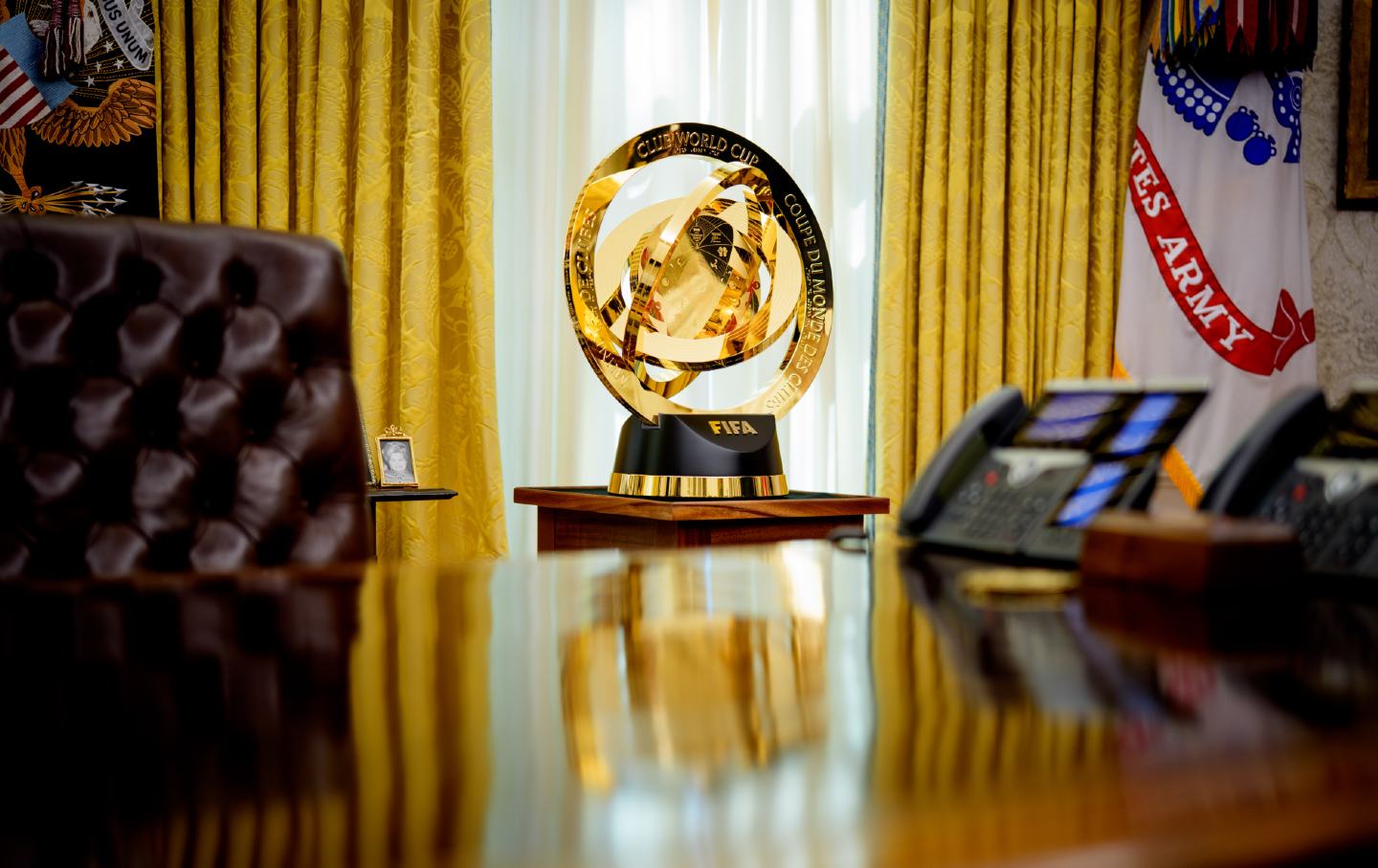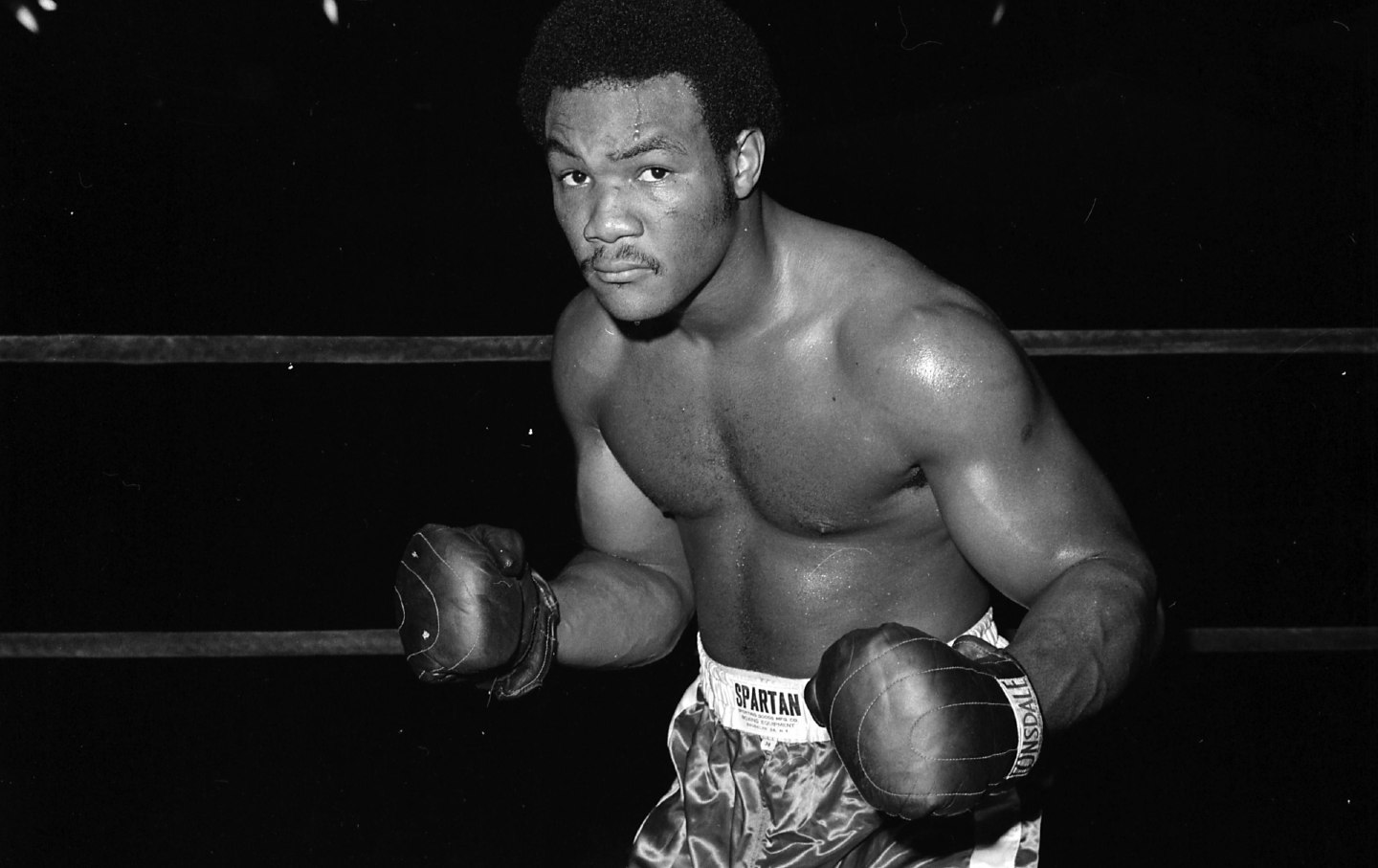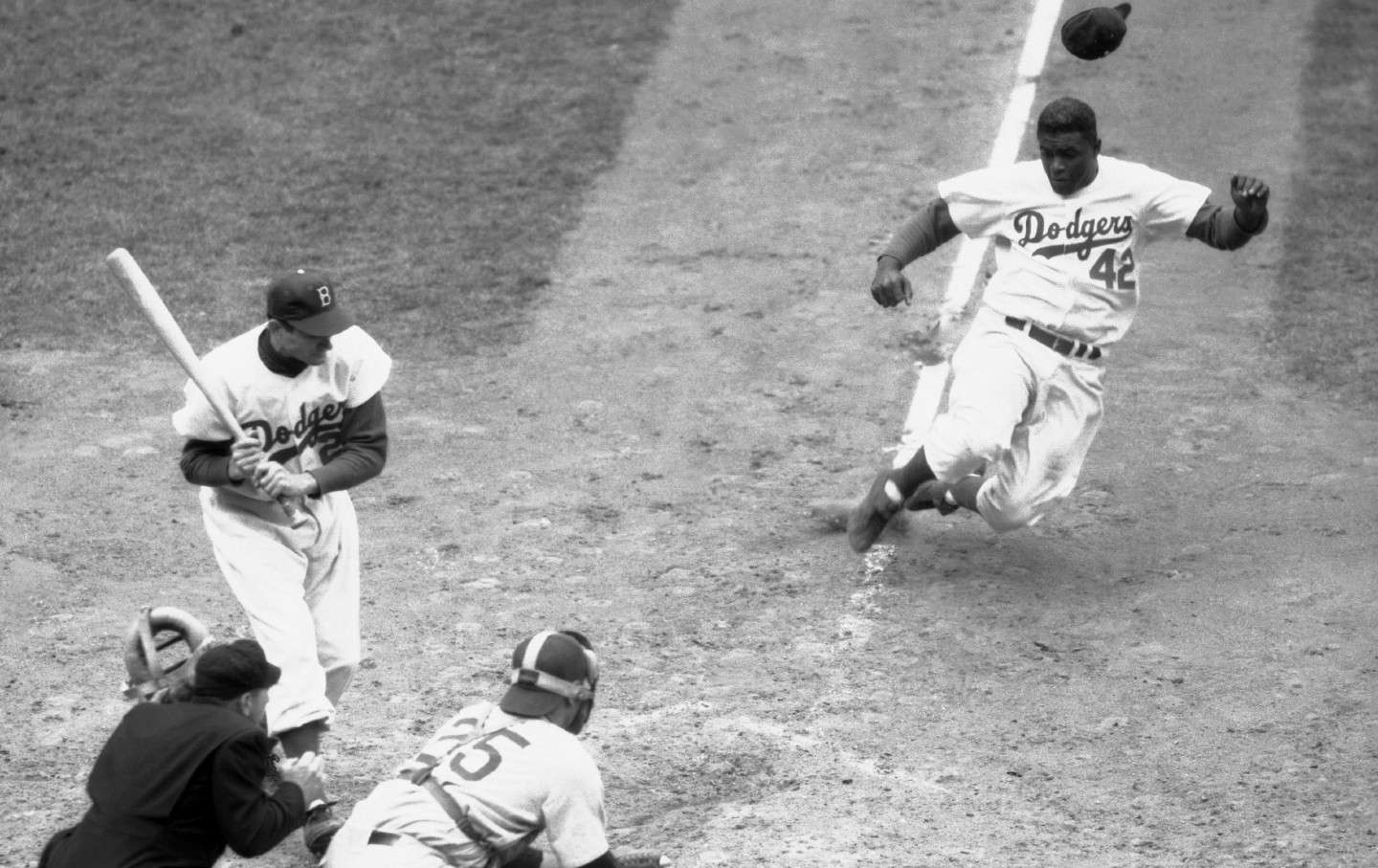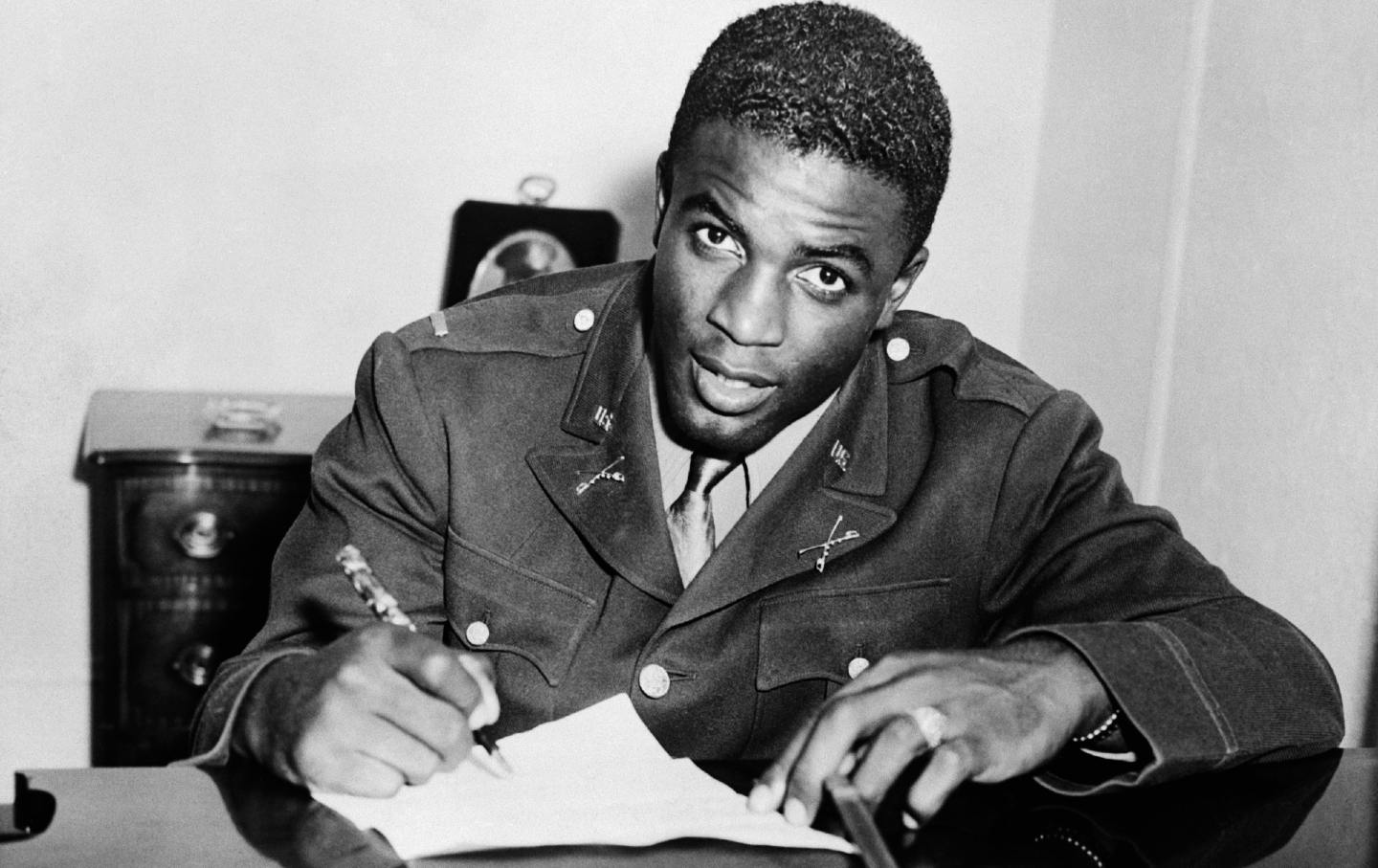Macklemore Is a Seattle Sports Superfan. Now, He Is Also a Target.
The Seattle sports establishment loved the Grammy Award–winning rapper until he dared criticize the United States for funding Israeli war crimes.
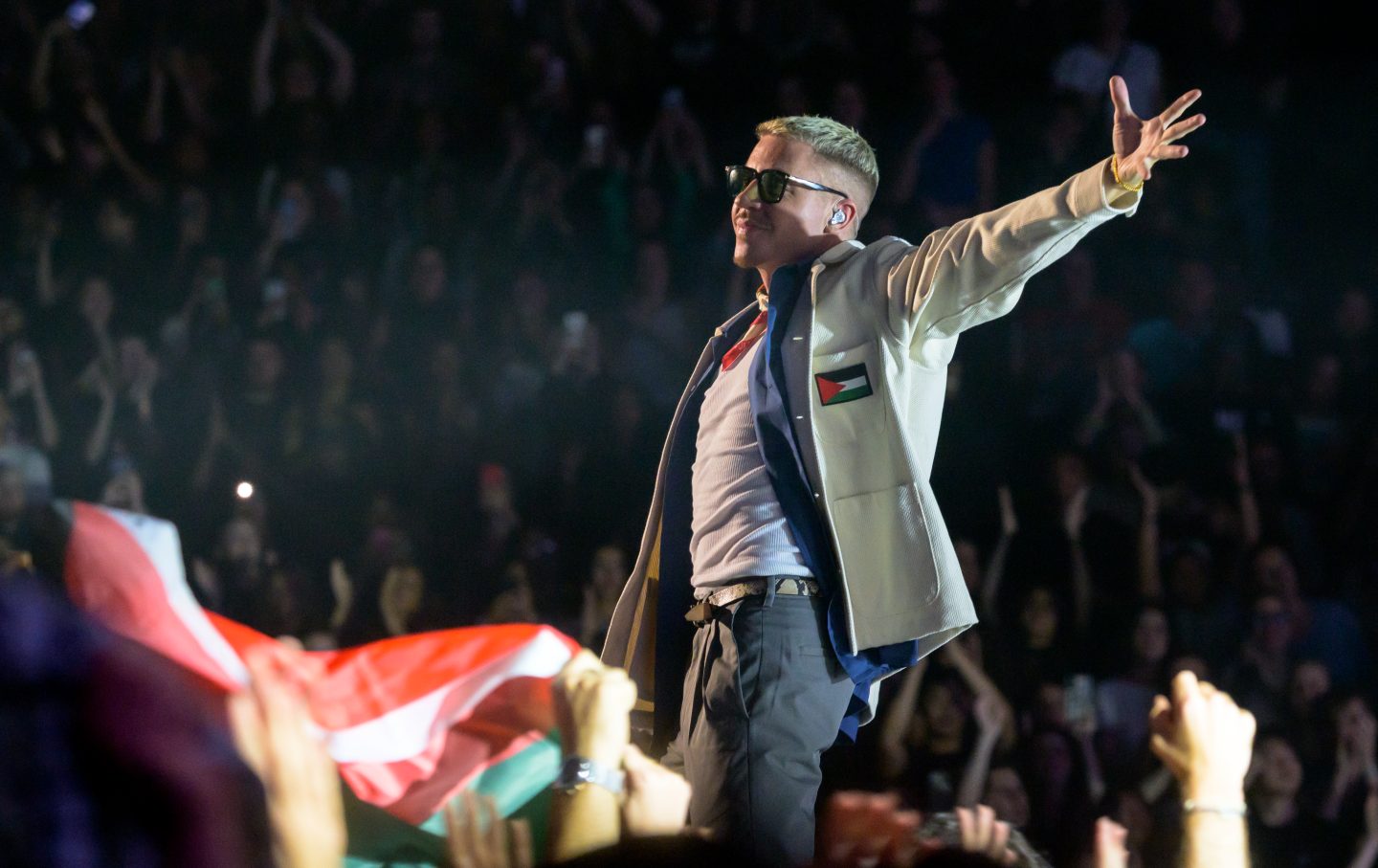
Macklemore performs onstage wearing a Palestinian flag during the ibis RockCorps France 2024 on May 29 in Paris, France.
(Kristy Sparow / Getty Images)
There’s a new Seattle sports tradition: During the seventh-inning stretch, the Mariners play Grammy Award–winning rapper Macklemore’s track “Can’t Hold Us.” The song and the artist mean more to Seattle than most outsiders understand. Macklemore, 41, born Ben Haggerty, is a Seattle native, and over the last dozen years has become as much a city institution as the Space Needle. Being a white rapper, with all the privilege that entails, he pays extra mind—and focuses his foundation work—on issues facing Black, brown, and other marginalized communities.
Macklemore is also an irrepressible hometown sports fan. In addition to his music, which rings out at every Seattle sports event, Macklemore shows up to rally crowds before and during games. He even gives Seattle baseball legend Ken Griffey Jr. cameos in his music videos. Macklemore also puts his money into the sports scene as a minority investor in both the National Hockey League’s Seattle Kraken and the men’s pro soccer club Seattle Sounders FC. New York City has Spike Lee; Los Angeles, Jack Nicholson; and Seattle sports teams, Macklemore.
But that could now go away. At a hip-hop festival titled “Palestine Will Live Forever,” held in Seattle’s Seward Park, Macklemore reiterated his solidarity with the Palestinian people and his opposition to Israel’s war on Gaza and the United States’ role in funding the genocide. Last spring, Macklemore released the blistering “free Palestine” track “Hind’s Hall,” titled after the building taken over by Columbia University protesters that was renamed in honor of Hind Rajab, a 6-year-old Palestinian girl whom Israeli forces killed alongside her family in Gaza. After debuting his new track “Hind’s Hall 2” at the festival, Macklemore seemed to respond to someone in the crowd and said, “Straight up, say it. I’m not going to stop you. Yeah, fuck America.”
Almost before the speakers were loaded onto the truck, the Sounders and Kraken released a joint statement that indicated they could be severing all connections with Macklemore. They wrote, “We believe that sports bring people together and unite us. We are aware of Macklemore’s increasingly divisive comments, and they do not reflect the values of our respective ownership groups, leagues, or organizations. We are currently evaluating our collective options on this matter.”
The Sounders and Kraken were backed up by the American Jewish Committee Seattle, whose regional director, Regina Sassoon Friedland, said, “I’m not really surprised by it, I’m disgusted by it. I do hope corporate entities like the Kraken and the Mariners will think their relationships and cut ties right away.”
In addition, festival organizers dropped Macklemore from a show in Las Vegas. It recalls what Ice T said a generation ago: “Freedom of speech… just watch what you say.”
In response to all of this, Macklemore released a statement in which he said:
I wish I had been in a better place with my grief and anger. But the truth is I’m not OK. I haven’t been. The last 11.5 months of watching a genocide unfold in front of us has been excruciating on a spiritual, emotional, and human level. I have been in utter disbelief with how our government is showing up at this moment in history. I don’t think I’m alone. I see dismembered kids in Gaza being pulled out of rubble, murder[ed] by U.S. manufactured bombs. I see my own children in their lifeless bodies. I don’t think I’m alone.
We need to be clear (and the American Jewish Committee’s comments give the game away): If Macklemore had said “fuck America” in a musical or artistic context that did not involve Palestine, no one would have noticed or cared. I remember seeing Flava Flav stick an American flag down his pants and through his zipper. Today, he’s America’s Olympic sweetheart. An artist saying “fuck America” is not an uncommon occurrence in our popular culture, but defending Palestinians is. Doing so—no matter who you are or where you work or how many Grammys you possess—puts you at risk. It is not just Macklemore. Concertgoers caught on camera as well as concert organizers and supporters are being doxxed just for attending or staging the day-long show.
Macklemore has been open about the fact that before October 7, he knew relatively little about Israel and Palestine, but he started reading and talking to others, and the more he learned and the more bodies of dead children he saw on social media, the more he felt he had to do something. That has included recording “Hind’s Hall,” one of the most downloaded songs of 2024; speaking out against Israel’s attacks and the US’s sending arms to be used in a genocide; and defending student protesters. Now, he’s a target. Most artists have been silent on Palestine; defenders of the status quo insist on punishing the tiny minority who speak—to turn them into examples so no one else might dare point out that the US is funding and arming a genocide in plain sight.
Macklemore’s future in the Seattle sports world is in question. His absence would create a void extending beyond that arena. It would be a cleaving of the kind of community connectivity that Macklemore has strived for—sometimes deftly, sometimes clumsily—throughout his career. The sports community in Seattle—from fans to players, to coaches to even dissident franchise owners—needs to stand up and say that Macklemore will not be erased from a 21st-century Seattle sports scene he helped to forge. The first test will be Friday when the Mariners return from a road trip. Will “Can’t Hold Us” be played during the seventh-inning stretch? The answer to that question will speak volumes.

